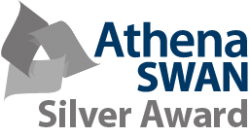Seeking your thoughts on gender equality in STEMM
Academics are invited to share their experiences of gender equality in their STEMM (science, technology, engineering, mathematics and medicine) disciplines and at the University.
 In April, the School of Life Sciences received the University’s first ever Athena SWAN Silver award in recognition of its work to support the careers of female scientists
In April, the School of Life Sciences received the University’s first ever Athena SWAN Silver award in recognition of its work to support the careers of female scientists
The Equality Challenge Unit's national ASSET 2016 (Athena Survey of Science, Engineering and Technology) survey is taking place across 52 UK institutions, taking into account factors including number of STEMM academics, region and background.
The ECU survey was emailed to all 494 STEMM academics at Sussex in April. To date, 54 staff have completed the survey at Sussex.
The academics eligible to complete the survey will receive a reminder email next week. If 126 Sussex staff respond to the survey then the University will receive a useful summary of the data collated from this group of staff.
To allow more time for people to respond the survey deadline has now been extended until Tuesday 28 June.
The University’s Athena SWAN lead, Jackie Rymell, said: “Although significant advances have been made to support gender equality in the STEMM disciplines in higher education, and here at Sussex all of our STEMM Schools have made great progress in supporting the Athena SWAN Charter, there is still work to be done.
“The ASSET survey will help to establish a clearer picture across the HE sector of what progress has been made, where gaps remain, and most importantly, whether the initiatives introduced to promote gender equality in STEMM have had a positive impact on academic staff. Your participation in the survey is therefore greatly encouraged and appreciated.”
ASSET 2016 will build a clear picture of the progress towards gender equality in STEMM departments across the country, providing institutions, policy makers and funders with benchmarks and measures of impact among academic staff.
The results will help identify where gender inequality may persist, and provide figures on which to base national benchmarks for the HE sector.
The survey will include questions on career progression, allocation of resources and workload, job seeking and interviewing, training, research output and periods of leave. All data gathered will be held confidentially and ECU will not provide or report the data in a way that will allow individuals to be identified.
